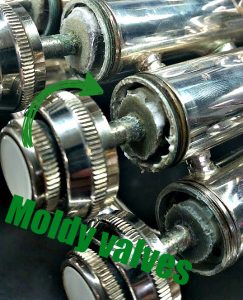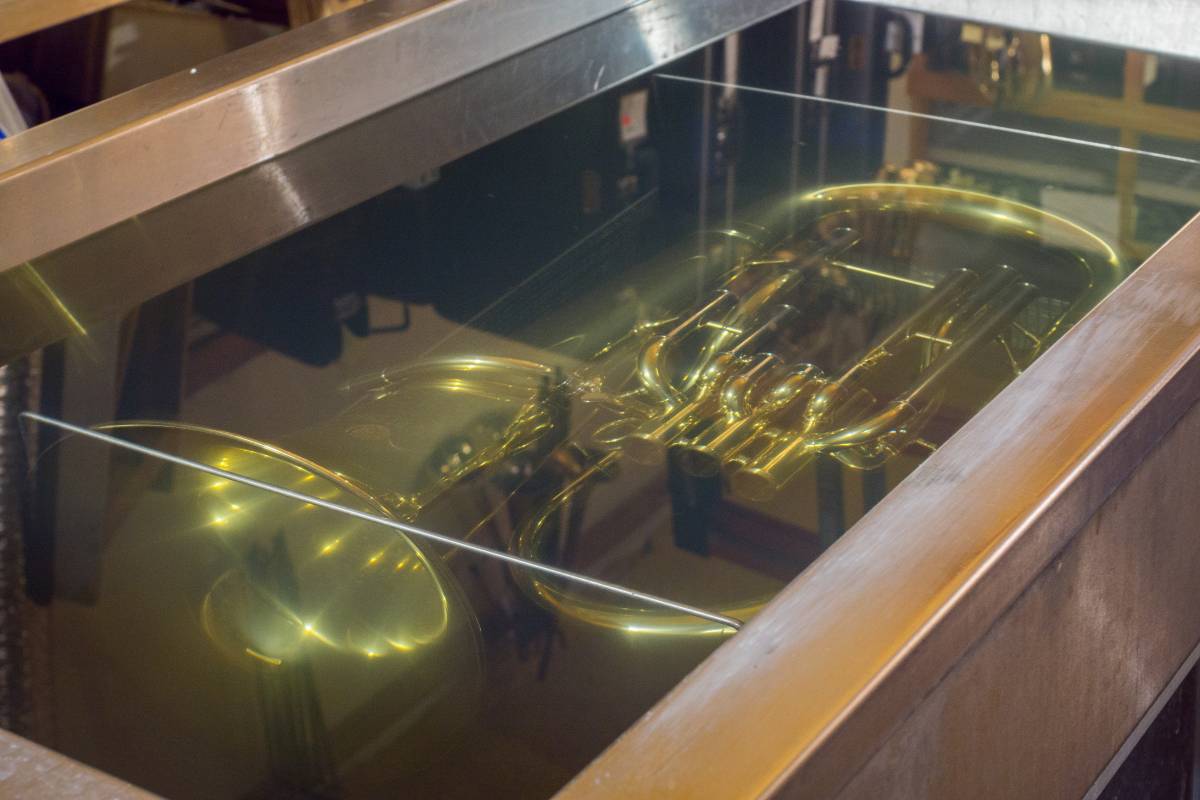Your instrument is like a pet; you need to feed it regularly with practice time and clean it so it won’t stink up the case. So, when should you clean it? What signs should you look for?
Brass Instruments
Your mouthpiece is something you should clean once a week. Warm, soapy water with your  mouthpiece brush will do the trick. This keeps “things” from growing (yes, GROWING) inside your mouthpiece. Breathing in the “things” that can grow inside your instrument is bad for you! A brass mouthpiece brush is about $3.
mouthpiece brush will do the trick. This keeps “things” from growing (yes, GROWING) inside your mouthpiece. Breathing in the “things” that can grow inside your instrument is bad for you! A brass mouthpiece brush is about $3.
Your instrument should be deep-cleaned AT LEAST once a year (most Rent-To-Own programs include this). Music stores sell other brushes so a bathtub cleaning can be done at home every couple of months, but there are just some things that need a professional touch. The best cleaning is done with an ultrasonic tank because it gets in all of the bends and tiny spaces and removes whatever lives in it!
You don’t want your instrument to look like this!
Woodwind Instruments
Like the brass instruments, it is a good practice to clean your mouthpiece with warm, soapy water once a week using a mouthpiece brush (a woodwind mouthpiece brush is about $4). ALWAYS take your reed and ligature off before cleaning. If your reeds are getting mold spots before you need to replace it, get some strong mouthwash, dip the reeds, and let them dry on a paper towel. You will also want to clean out your reed guard if this is happening (your mouthpiece brush will do it). Let all of the components dry completely before putting them away.
Unlike the brass instruments, you DO NOT want to dunk your whole instrument into water. Ever. You will swab out your woodwind instrument (flute, clarinet, or saxophone) every day. This gets all of the moisture out so “things” don’t grow. Once a year, you will need what is called a “reseat and adjust.” This refers to reseating the pads (under each of your keys) so they cover the tone holes completely. The adjustment is to make sure all the keys move when they’re supposed to and at the correct height. If there are extenuating circumstances, a woodwind instrument might be put through our ultrasonic tank, but there are steps to prevent any damage to the instrument which should only be done by a professional. Please keep your woodwind away from liquids!
Stringed Instruments
Your violin, viola, cello, or bass is perhaps the simplest to maintain. All you really need is a polish cloth! Whenever you finish playing, you will want to use the polish cloth to wipe off any fingerprints or rosin dust left behind from playing. Rosin dust (if left on the instrument) can ruin the finish! Another part of keeping your orchestra instrument in good condition is to always loosen the bow when you finish playing and NEVER touch the bow hair! The oils from your hands will cause dirt and rosin to clump on the bow hair and ruining it.
****
If your instrument is ever not working correctly, have a certified repair shop look it over. Yes, it could be a simple fix that you will hate that you made a trip. It is better to be safe than have a “simple fix” turn into a big expense because of a mistake.



